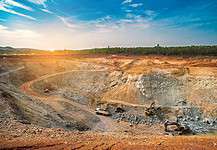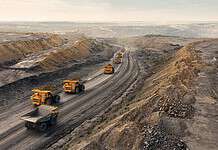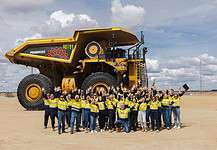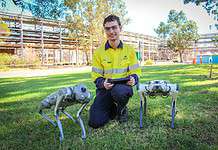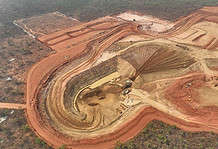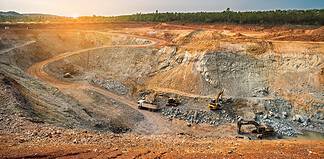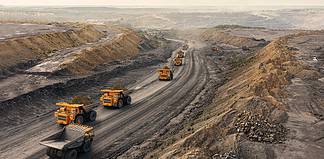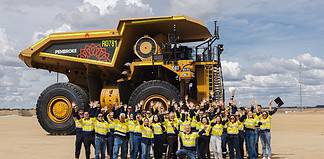PORT Waratah Coal Services owns and manages both the Kooragang and Carrington Coal Terminals, which have a combined capacity of 145mtpa, and employs about 350 people across the 24/7 business.
At October 31, exported 92,021,793t of coal from both the Carrington and Kooragang terminals, up from 90,454,527t at 2018, with Carrington contributing 12,190816t. and Kooragang contributing 79,878,238t.
Fires temporarily closed the rail network that supplied both the port of on November 12, and the Australian Rail Track Corporation (ARTC) said that there was no damage to assets and services gradually began to resume operation from 7:45 until the morning of November 13.
“ARTC continues to monitor conditions regarding train operations on its network in NSW and is working with operators and emergency services regarding train movements and access to the rail corridor,” it said.
In 2019, the company won the prestigious SafeWork award alongside Sydney Metro, CareSouth and John Harris from Liberty Industrial.
Minister for Better Regulation and Innovation, Kevin Anderson, said that the award recognised the hard work of employees and businesses that had outstanding health and safety standards.
“The winners are setting new standards for providing safe and healthy workplaces across NSW,” he said.
“Every worker has the right to work in a safe environment, so they can return to their homes and loved ones at the end of the day.
“These awards acknowledge the commendable work we see in categories including ‘Leadership in Workplace health and safety culture’, ‘Best Solution to High Risk Work Health and Safety Issue’, as well as acknowledging ‘Excellence in Recovery at Work’ for both businesses and individuals.
Port Waratah Coal Services chief executive Henry Du Plooy said that it was a credit to the company’s dedication to safety.
“Continuously improving the way we work is integral to our safety performance, with the aim of working free from injury, illness and harm,” he said.
“Whilst we as a business are responsible for providing a safe site for employees, contractors and visitors, we are also committed to empowering our employees to make safer choices and encourage a shared responsibility for health and safety.”
Terminal illness
At the end of 2018, throughput fell short of both budgeted and contracted volumes, although it did exceed the 2017 throughput due to high demand.
The controversial $5b Terminal 4 was scrapped after “extensive consultation with stakeholders”.
Mr Du Plooy said that market conditions for Hunter Valley coal were still strong.
“At Port Waratah’s terminals, 105mt were loaded in 2017 and incremental growth is expected this year,” he said
“With significant growth capacity available in the existing terminals, we do not expect that the conditions to support an investment of the large and long-term nature of Terminal 4 will be in place before the development approval lapses in September 2020.”
“We are proud of the role our Carrington and Kooragang terminals play in connecting Hunter Valley coal with the world.
“We are confident that with ongoing investment in the reliability and performance of these terminals, we will be well positioned and flexible enough to adjust quickly to changes in demand.”
““We are committed to understanding and meeting the expectations of our stakeholders, particularly in limiting noise, reducing dust and water usage, and creating the smallest environmental footprint that we can. We continue to make significant investments in our terminals, to improve both operational and environmental performance.”
The company said that it was focused on being responsive and flexible to better service customers during periods of high demand and Port restrictions due to weather impacts so that the full capacity of the terminals was available when required.
During the year Port Waratah diversified its funding base by successfully refinancing $232m in the Japanese debt capital market through a new seven-year “samurai” syndicated loan.


